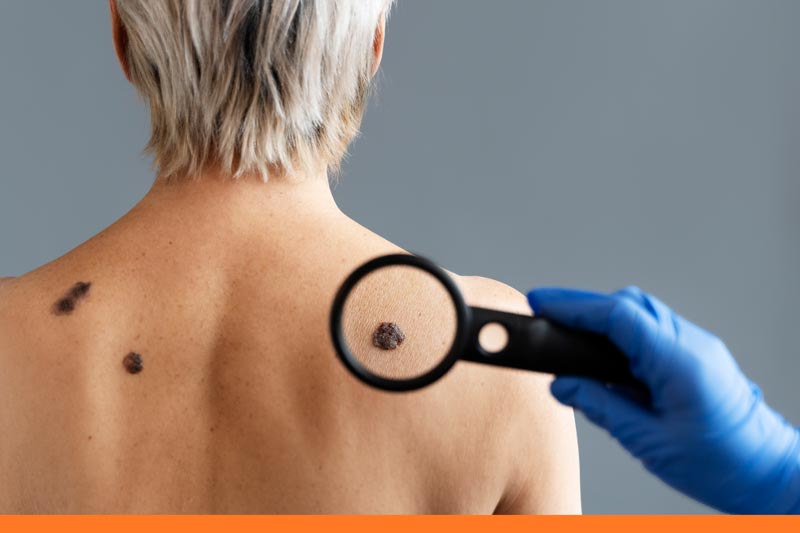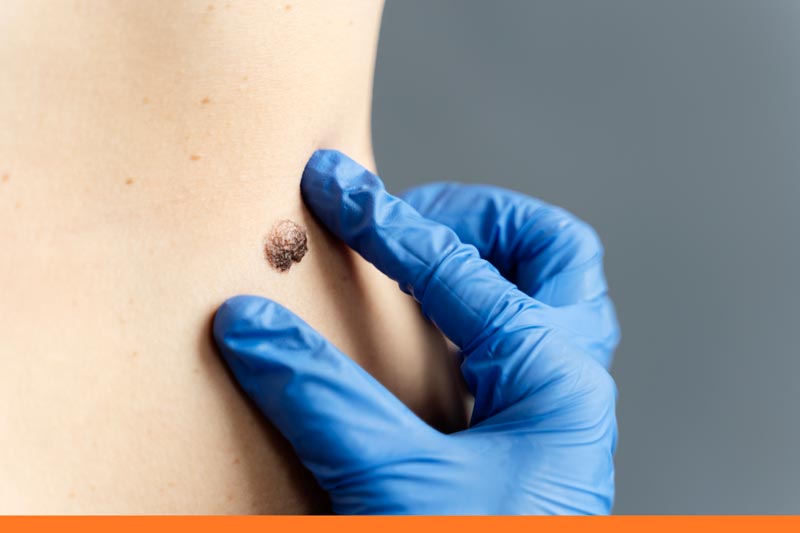
Warts are small, rough, and often raised bumps on the skin caused by a viral infection. They can appear on any body part but are most commonly found on the hands, feet, and face. Warts are caused by the human papillomavirus (HPV), a common virus that enters the skin through a cut or scrape, causing an overgrowth of skin cells, resulting in a wart. The virus can also be spread through indirect contacts, such as touching a surface that has come into contact with an infected person’s wart.
There are several types of warts, each caused by a specific strain of HPV.
While warts are not usually harmful, they can be unsightly and uncomfortable, and in some cases, they may spread or become infected. Fortunately, several effective treatments are available to remove warts, including over-the-counter medications, prescription medications, and in-office procedures performed by a healthcare professional. If you want relief from your wart affliction, visit an urgent care center in West Hartford, CT.
Warts can be pesky and uncomfortable skin conditions that often pop up unexpectedly. Fortunately, urgent care clinics in West Hartford, CT, are equipped to provide efficient and effective wart diagnoses. Whether you’re struggling with plantar warts on the soles of your feet or common warts on your hands or face, trained medical professionals can accurately diagnose and treat your condition in no time. So make an appointment or walk in for same-day care and say goodbye to those unsightly warts!
Warts are usually easy to recognize, as they have distinct physical characteristics. The following are some common symptoms to look out for when diagnosing a wart:
If you suspect you have a wart, it’s important to properly diagnose it by a healthcare professional at an urgent care clinic near you. While warts are usually harmless, they can sometimes be mistaken for other skin conditions, such as moles or skin cancer, which require different treatments. A healthcare professional at urgent care in West Hartford, CT, can accurately diagnose and recommend the best treatment for your situation.

Warts are typically diagnosed based on their appearance and location, but in some cases, a healthcare professional in urgent care in West Hartford, CT, may perform additional tests to confirm the diagnosis or rule out other conditions. The following are some of the tests that may be used to diagnose a wart:
It’s important to note that in most cases, a healthcare professional in West Hartford, CT, can diagnose a wart based on its appearance and location without additional tests. However, if there is any uncertainty about the diagnosis or if the wart is large or unusual in appearance, additional tests may be recommended to confirm the diagnosis or rule out other conditions.
Several treatment options are available for wart removal in West Hartford, CT. These treatments vary in effectiveness, cost, and potential side effects. The best option will depend on the type and location of the wart, the patient’s medical history, and personal preferences. The following are some common treatment options for wart removal:
It’s important to discuss each treatment option’s potential benefits and risks with a healthcare professional before deciding on the best course of action for wart removal.
Warts are caused by a virus and can be spread through direct or indirect contact with an infected person or surface. While it’s not always possible to completely avoid getting warts, there are several steps you can take to reduce your risk of getting them in the future. Here are some prevention tips:
By following these prevention tips, you can reduce your risk of getting warts in the future. However, if you do develop a wart, it’s important to have it properly diagnosed and treated by a healthcare professional.

Warts are generally not a medical emergency; in most cases, they can be treated at home or by a primary care physician. However, there are some situations where it may be necessary to visit an urgent care facility in West Hartford, CT, for your wart. Here are some signs that indicate you should seek medical attention for your wart:
In general, if you are unsure about the severity of your wart or have any concerns about it, it’s always a good idea to consult with a healthcare professional. Urgent care facilities can provide convenient and timely care for non-emergency medical issues, including warts.
Warts are a common and often harmless skin condition caused by a viral infection. While they can be unsightly and uncomfortable, several treatment options are available for wart removal, ranging from over-the-counter medications to in-office procedures. Additionally, several prevention tips can help reduce your risk of getting warts in the future, such as washing your hands regularly and avoiding sharing personal items.
If you are experiencing pain, discomfort, rapid growth, or bleeding associated with a wart, it may be time to seek medical attention. Docs Urgent Care in West Hartford offers fast, convenient, and effective treatment options for warts and other non-emergency medical issues. With a team of experienced healthcare professionals, state-of-the-art facilities, and flexible hours, DOCs Urgent Care can help you say goodbye to warts and quickly return to your daily routine.

During this surge in COVID-19 cases, our primary focus is meeting the high demand for tests, and we are seeing higher than usual wait times. This means we are unable to answer most phone calls. Please know that our teams are working very hard during this time to care for as many patients as safely as possible. Please click the button below for answers to common questions. We appreciate your understanding.